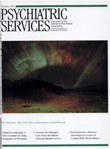Effective psychiatric day treatment: historical lessons
Abstract
This paper describes a successful day treatment program that provides four months of intensive psychodynamic group-oriented milieu treatment for patients with long-standing personality disorders, who commonly experience recurrent major depression, dysthymia, and excessive anxiety. The authors outline three factors that have contributed to the success of the program--optimal treatment-patientmatching, judicious use of authority in milieu therapy, and careful attention to maintaining close working relationships with referral sources. They provide an overview of the historical evolution of day treatment programs from earlier day hospital model to show day programs' neglect of these factors may have led to treatment failures. Such failures may have spurred recent suggestions that psychiatric day treatment programs should be replaced entirely by assertive community treatment. The authors argue that such a move could amount to abdication of psychiatry's responsibility to provide intensive milieu treatment that can be effectively offered only on a day treatment basis.
Access content
To read the fulltext, please use one of the options below to sign in or purchase access.- Personal login
- Institutional Login
- Sign in via OpenAthens
- Register for access
-
Please login/register if you wish to pair your device and check access availability.
Not a subscriber?
PsychiatryOnline subscription options offer access to the DSM-5 library, books, journals, CME, and patient resources. This all-in-one virtual library provides psychiatrists and mental health professionals with key resources for diagnosis, treatment, research, and professional development.
Need more help? PsychiatryOnline Customer Service may be reached by emailing [email protected] or by calling 800-368-5777 (in the U.S.) or 703-907-7322 (outside the U.S.).



